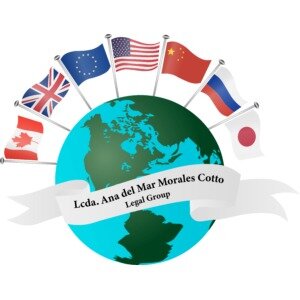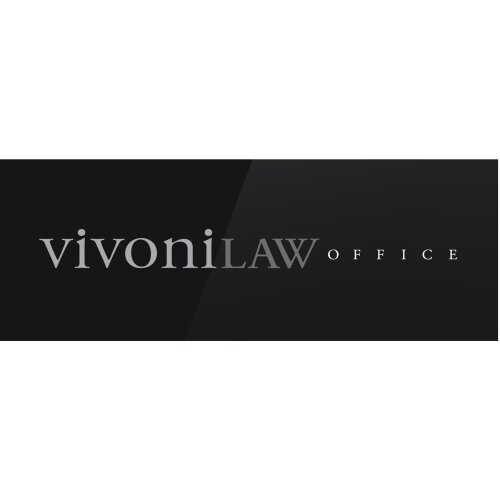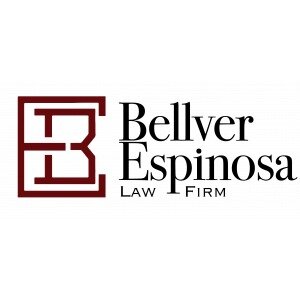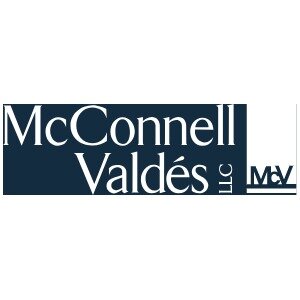Best Energy, Environment & ESG Lawyers in San Juan
Share your needs with us, get contacted by law firms.
Free. Takes 2 min.
List of the best lawyers in San Juan, Puerto Rico
About Energy, Environment & ESG Law in San Juan, Puerto Rico
Energy, environment, and ESG (Environmental, Social, and Governance) law is an evolving field in San Juan, Puerto Rico, shaped by unique local regulations, the island’s geographic location, and federal requirements. These laws cover issues such as sustainable energy production, environmental protection, business sustainability goals, and compliance with both local and federal environmental standards. Puerto Rico’s ambitious transition toward renewable energy sources, hurricane resiliency, and sustainability initiatives have placed these legal matters at the forefront of public and private sector operations.
Why You May Need a Lawyer
There are several scenarios where individuals or organizations in San Juan might need legal assistance with energy, environment, and ESG issues:
- Navigating complex renewable energy projects, including solar and wind installations
- Complying with environmental impact assessments for new construction or expansion
- Facing enforcement actions for environmental violations
- Addressing hazardous waste disposal and contamination concerns
- Pursuing energy efficiency incentives or grants
- Integrating ESG practices into business operations and reporting obligations
- Participating in permitting processes with the Puerto Rico Environmental Quality Board or other regulators
- Handling disputes involving land use, zoning, or environmental regulations
- Protecting community rights in the face of development projects that may affect local resources
Legal guidance ensures you understand your obligations, can defend against penalties, and make informed decisions regarding compliance and sustainable practices.
Local Laws Overview
Several key laws and regulatory bodies govern energy, environmental, and ESG matters in San Juan, Puerto Rico:
- Puerto Rico Energy Public Policy Act (Law 17-2019): Establishes energy policy and goals, including the target of 100 percent renewable energy by 2050.
- Puerto Rico Environmental Quality Board (Junta de Calidad Ambiental): Oversees air quality, water resources, waste management, and environmental permitting in alignment with local and US EPA standards.
- Puerto Rico Planning Board (Junta de Planificación): Regulates land use, zoning, and environmental impact statements for public and private projects.
- Law on Hazardous Waste (Law 9-1987) and Solid Waste (Law 70-1992): Mandate proper management, storage, and disposal of hazardous and non-hazardous waste.
- US Federal Regulations: Many federal laws such as the Clean Air Act, Clean Water Act, and Resource Conservation and Recovery Act also apply in Puerto Rico, often in cooperation with local authorities.
- ESG Disclosure Requirements: While specific to certain industries, many businesses voluntarily adopt ESG policies and reporting to attract investment or comply with stakeholder expectations.
Staying in compliance often requires navigating both the local regulatory landscape and federal requirements.
Frequently Asked Questions
What is ESG and why is it important for businesses in San Juan?
ESG stands for Environmental, Social, and Governance. It refers to a set of standards for a company’s operations that socially conscious investors use to screen potential investments. In San Juan, more businesses are adopting ESG practices, both for compliance and to remain competitive in a global market.
Do Puerto Rico’s renewable energy goals impact my business or home energy decisions?
Yes. Puerto Rico is transitioning toward 100 percent renewable energy by 2050, which may impact everything from utility rates to the incentives available for solar panel and battery installation at homes and businesses.
Who regulates environmental permits in San Juan?
The Puerto Rico Environmental Quality Board handles most environmental permits related to air, water, and hazardous substances. The Puerto Rico Planning Board also plays a role in permitting projects with potential environmental impacts.
How do federal environmental laws apply in Puerto Rico?
Puerto Rico must comply with US federal laws like the Clean Air Act and Clean Water Act. The local agencies often enforce these standards alongside or under the guidance of federal bodies such as the EPA.
What is the process for obtaining an environmental impact assessment?
Projects likely to affect the environment must submit a detailed study and seek approval from the Puerto Rico Planning Board and Environmental Quality Board. The process includes public input and review of alternatives to minimize environmental harm.
Are there financial incentives for installing renewable energy in San Juan?
Yes. Financial incentives, such as rebates and tax credits, are available for renewable energy installations in Puerto Rico, subject to eligibility and funds availability.
What are the main risks of non-compliance with environmental laws?
Risks include fines, penalties, shutdown of operations, loss of permits, and reputational damage for businesses and individuals.
What should I do if I receive a notice of environmental violation?
Promptly consult with an environmental law attorney to understand your rights and obligations and to develop a response or remedial action plan.
How do new developments affect local communities and their environment?
Developments may increase traffic, affect water resources, or impact sensitive habitats. Community input and environmental impact studies are required to help balance progress with environmental protection.
Does Puerto Rico require ESG reporting for all businesses?
Mandatory ESG reporting may apply to publicly traded companies and those seeking public contracts, but many businesses voluntarily produce ESG reports to attract investors and clients.
Additional Resources
- Pueblo Rico Environmental Quality Board - Serves as the main environmental regulator for permits and enforcement
- Pueblo Rico Planning Board - Oversees land use and environmental impact statements
- US Environmental Protection Agency - Region 2 Office (includes Puerto Rico)
- Pueblo Rico Department of Economic Development and Commerce - Offers incentives and guidance on renewable energy
- Pueblo Rico Chamber of Commerce - Provides ESG and sustainability resources for businesses
- University of Puerto Rico Environmental Law Clinic - Offers support and legal research services
Next Steps
If you or your organization needs legal advice regarding energy, environmental, or ESG matters in San Juan, here are practical steps to take:
- Gather all relevant documents, permits, notices, and communications related to your legal concern
- Identify the specific issue, such as compliance, permitting, dispute, or enforcement
- Contact a licensed attorney in Puerto Rico with experience in energy, environment, or ESG law
- Schedule a consultation to discuss your needs, potential risks, and available legal strategies
- Explore alternative resolutions such as negotiation or mediation, when appropriate
- Stay informed by following updates from local agencies and participating in public hearings or consultations
Legal issues in this field can be complex. Obtaining qualified legal advice early can help you manage risks, comply with evolving laws, and achieve your sustainability goals in San Juan, Puerto Rico.
Lawzana helps you find the best lawyers and law firms in San Juan through a curated and pre-screened list of qualified legal professionals. Our platform offers rankings and detailed profiles of attorneys and law firms, allowing you to compare based on practice areas, including Energy, Environment & ESG, experience, and client feedback.
Each profile includes a description of the firm's areas of practice, client reviews, team members and partners, year of establishment, spoken languages, office locations, contact information, social media presence, and any published articles or resources. Most firms on our platform speak English and are experienced in both local and international legal matters.
Get a quote from top-rated law firms in San Juan, Puerto Rico — quickly, securely, and without unnecessary hassle.
Disclaimer:
The information provided on this page is for general informational purposes only and does not constitute legal advice. While we strive to ensure the accuracy and relevance of the content, legal information may change over time, and interpretations of the law can vary. You should always consult with a qualified legal professional for advice specific to your situation.
We disclaim all liability for actions taken or not taken based on the content of this page. If you believe any information is incorrect or outdated, please contact us, and we will review and update it where appropriate.
Browse energy, environment & esg law firms by service in San Juan, Puerto Rico
San Juan, Puerto Rico Attorneys in related practice areas.












